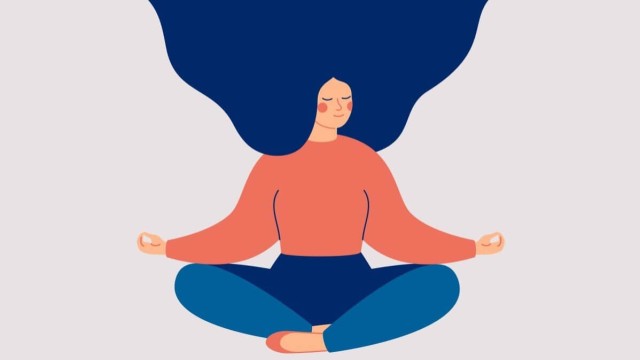
Swipe Your Way to Mental Wellness in Just 10 Apps
The mental wellness space is growing and is said to be worth US$121 billion, as users all over the world recognise the benefits of fun and easy-to-use apps that can help them improve their well-being. Here are ten mobile apps with various features - from mindfulness exercises, mood tracking tools to relaxation techniques - that can help you foster emotional balance and improve your mental health.
Calm and Headspace have been ubiquitous widgets on the home screens of busy urbanites. But besides these fun-to-use apps designed to help us meditate and be mindful, a slew of new startups are muscling their way into a mental wellness space said to be worth a staggering US$121 billion. Here are our picks of niche mental wellbeing apps with functions that range from gratitude journaling to strategies on how you can manage aggressive outbursts.
1. For hot-headed moments
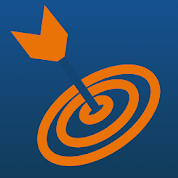
AIMS provides users with educational resources about anger, as well as outlets to find support, an anger management plan, anger tracking, and tools to help manage angry reactions. Users can also create customised tools based on their preferences and integrate their own contacts, photos, and music. The AIMS app may be used on its own, or in combination with a complementary online course or in-person therapy.
2. For when you feel the blues

Sanvello is touted as a “feel-better toolkit”, with features like therapy, coaching, coping techniques, meditations, and goal and mood tracking, designed by experts to help users feel better. The customisable app checks in on its users to track emotions and progress over time. As patterns are identified, Sanvello will provide customised tools, rooted in cognitive behavioural therapy, to keep the user on track to feeling better.
3. For boosting mindfulness

Healthyminds harnesses podcast-style lessons together with meditations to help users learn science-based methods to train the brain, while developing skills to leverage these learnings for stronger mental health. It includes a report function that measures its user’s well-being and improvements over time.
4. For gratitude journaling
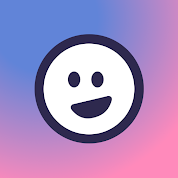
Happyfeed is an easy-to-use journal app that helps cultivate gratitude by reflecting on three good things each day. Studies have shown that gratitude can improve psychological health and reduce aggression. Newbies to mindfulness or journaling can fill out a private diary with happy memories, or join a group to share their happiness with friends and loved ones.
5. For greater relaxation
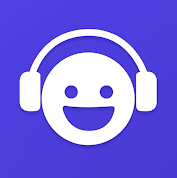
Brain.fm taps on the power of music to help the brain focus, meditate, relax or sleep. Using a proprietary AI algorithm, the app was developed together with neuroscientists and combines auditory neuroscience findings with music to influence cognitive states.
6. For building resilience
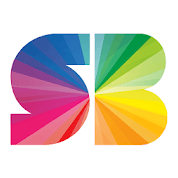
SuperBetter is created by award-winning game designer Jane McGonigalo to build resilience, achieve goals, and tackle challenges including anxiety, depression and stress. By tapping on the power of a gameful mindset, the app aims to promote personal growth through controlled stress and change in the form of challenges, battles and quests.
7. For anxiety attacks

ReachOut Breathe is for those who feel intimidated by full-on meditation. The app helps users learn controlled breathing through visual guides to address anxiety, panic or stress. Users can customise key features such as breathing intervals or duration to match their current abilities and tweak these features as they become better at deep breathing.
8. For managing OCD

GG OCD aims to improve symptoms of OCD, specifically negative thinking, by increasing the user’s awareness of negative thoughts and training the brain to challenge them. The app guides users through multiple levels, consisting of short games. The first few levels aim to promote positive self-talk, while later goals include building self-esteem, belief in change, tackling self-criticism and negative thinking, coping, and more.
9. For fixing insomnia
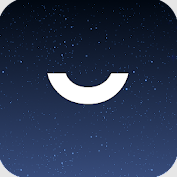
Pzizz uses a clinical research-backed system that plays “dreamscapes”— a mix of music, voice cues, and sound effects that change each night, to quiet the mind, put users in the mood for sleep, keep them asleep, and then wake them up feeling refreshed. Plug in earbuds and use this app for power naps — proven by this NASA study to boost job performance.
10. For tackling hormonal mood swings
Period Tracker features a stylish and discreet interface to track its user’s periods, daily moods, health symptoms, notes, and even the weather, so as to correlate such events to one’s cycle. Studies have shown that women are at a higher risk of developing mood disorders — which is associated with fluctuating oestrogen levels that occur during the menstrual cycle. Using a tracker app helps women vulnerable to premenstrual mood changes be more aware of symptoms and emotions, and serves as a reminder to be kinder to themselves as their bodies respond to the stress of hormonal fluctuations.
The above linked sites are provided as an information service. SMU and The SMU Blog do not in any way endorse the apps mentioned.



